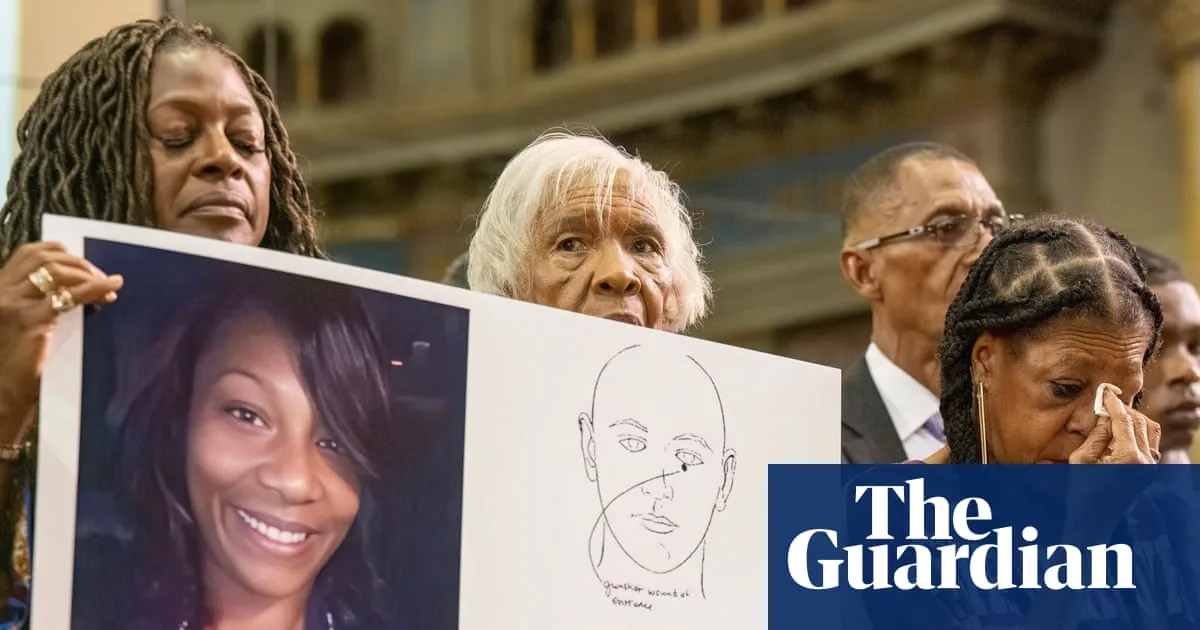
An Illinois jury has found former sheriff’s deputy Sean Grayson guilty of second-degree murder in the tragic shooting death of Sonya Massey, a Black woman who had called 911 seeking help. This conviction comes as a critical moment in discussions about police accountability and the treatment of marginalized communities within the U.S. justice system. Grayson, aged 31, faces a potential sentence of up to 20 years in prison, although probation is also an option. His sentencing is set for January 29, 2024.
On the early morning of July 6, 2024, Grayson and another deputy responded to Massey’s residence in Springfield, Illinois, following her report of a prowler. During the encounter, Grayson shot the 36-year-old woman after confronting her regarding a pot of hot water she had removed from her stove. Grayson claimed that he feared for his life, suggesting that Massey intended to scald him with the boiling water.
Initially charged with first-degree murder, which carries a mandatory sentence of 45 years to life, Grayson’s case took a turn after a seven-day trial. The jury was presented with the option to consider second-degree murder, which applies in situations where the defendant may have faced serious provocation or believed their actions were justified, even if that belief was unreasonable. The potential sentence for second-degree murder ranges from four to 20 years, with the possibility of halving the sentence for good behavior.
A crucial element of the prosecution's case was the body-camera footage recorded by deputy Dawson Farley, who was also present at the scene. The video depicted Massey, who had a history of mental health issues, pleading, “Don’t hurt me,” and repeatedly saying, “Please God.” The footage showed a tense exchange between Grayson and Massey, where Grayson ordered her to move the pot, leading to a moment of levity before the situation escalated dramatically.
During the confrontation, after Massey jokingly responded, “I rebuke you in the name of Jesus,” Grayson interpreted her words as a threat. He fired three shots, hitting Massey just below the eye. Farley testified that he did not perceive Massey as a threat during the incident, though he initially reported fearing for his safety due to the hot water.
In his defense, Grayson was the first witness his attorneys called. He stated that he saw the bottom of the pot was red, leading him to believe Massey would throw the hot water at him. His testimony included claims that officers are trained to use force to ensure compliance, framing his actions as necessary under the circumstances. Following the shooting, Grayson made comments reflecting a troubling disregard for public safety, which prompted the judge to keep him in custody pending trial.
Massey’s death sparked significant public outrage and raised important questions about the treatment of Black individuals by law enforcement in their homes. It also led to a shift in Illinois law, mandating greater transparency regarding the backgrounds of candidates for law enforcement positions. The incident resulted in the early retirement of the sheriff who hired Grayson and prompted a federal investigation by the U.S. Justice Department.
The resolution of this case is a pivotal moment for police accountability in Illinois and beyond. The Sangamon County Sheriff's Department has since agreed to enhance training, particularly focusing on de-escalation practices, and to develop a response program involving mental health professionals for emergency calls. As the community reflects on this tragic event, the ongoing implications for law enforcement practices remain a critical point of discussion.